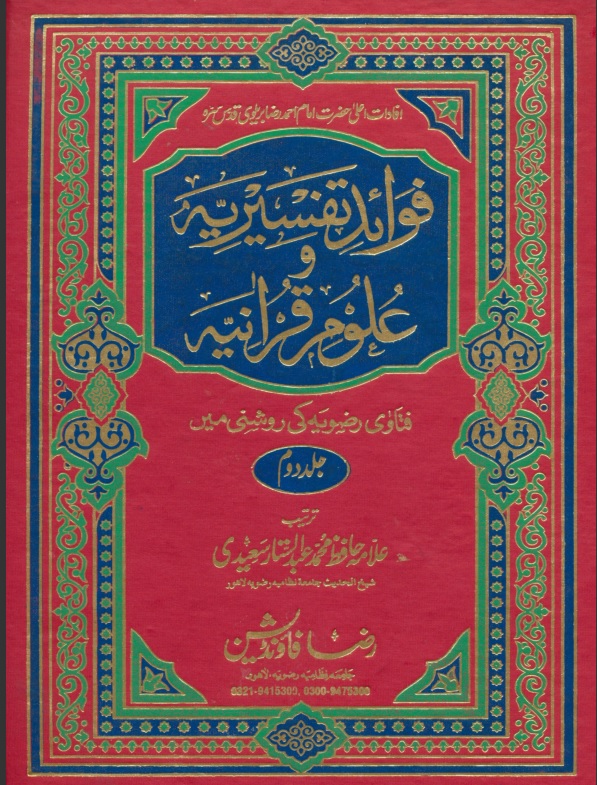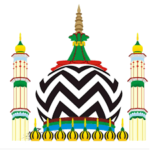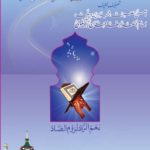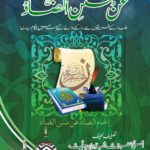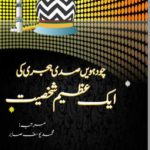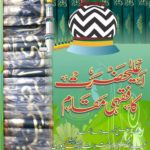فوائد تفسیریہ و علومِ قرآنیہ فتاویٰ رضویہ کی روشنی میں جلد دوم
Fawaide Tafsiriyyah wa Uloome Quraniah Fatawa Razaviah ki Raushni Main Volume 2
از افاداتِ اعلیٰ حضرت مجددِ دین و ملت امام احمد رضا خان علیہ الرحمۃ الرحمٰن
ترتیب: علامہ حافظ محمد عبدالستار سعیدی
امام احمد رضا کا شہرہء آفاق فتاویٰ رضویہ شریف تقریباً 22000 صفحات پر مشتمل ہے۔ اس میں 6847 سوالات کے جوابات ہیں۔ دنیا کے اس عظیم فتاویٰ میں احکامِ شرعیہ و مسائلِ فقہیہ کے ساتھ ساتھ متعدد دیگر علوم و فنون سے متعلق مباحثِ کثیرہ و دقائقِ عدیدہ پر بھی سیر حاصل گفتگو مذکور ہے۔ امام احمد رضا کے اکثر و بیشتر فتاویٰ کسی نہ کسی آیتِ قرآنی یا اس سے ماخوذ اصول پر مبنی ہوتے ہیں اعلیٰ حضرت امام احمد رضا کا اسلوبِ تحقیق یہ ہے کہ سب سے پہلے کتاب اللہ کی طرف رجوع فرماتے ہیں ، پھر حدیثِ نبوی سے استفادہ فرماتے ہیں اس کے بعد اقوالِ فقہا سے دلیل پیش کرتے ہیں۔ بعض فتاویٰ میں آپ نے ایک آیتِ کریمہ سے مختلف طُرق سے استدلال فرمایا اور بعض فتاویٰ میں ایک مسئلہ پر کئی آیات اور ان کے مختلف طرق سے استدلال فرمایا۔ الغرض قرآنِ حکیم ہی فتاویٰ رضویہ کا اولین ماخذ ہےپیشِ نظر کتاب اسی بحرِ ذخار میں بکھرے ہوئے لطائفِ تفیسیریہ و جواہرِ قرآنیہ کا مجموعہ ہے جنہیں راقم نے فتاویٰ رضویہ شریف سے اخذ کر کے مرتب کیا ہے۔ یہ کتاب تین جلدوں پر مشتمل ہے جو مندرجہ ذیل ابحاث و فوائد پر مشتمل ہے۔ تفسیر، اصولِ تفسیر، علومِ قرآن، رسم القرآن، تاریخ، جمع و ترتیبِ قرآن، لغاتِ قرآن، فضائلِ قرآن، احکامِ قرآن، اسبابِ نزول، ناسخ و منسوخ، تقابل ِ اقوالِ مفسرین اور ان میں سے کسی ایک کی ترجیح پر دلائل، غلط اقوالِ تفسیر کا رد، قواعدِ تجوید و قراءت، آدابِ تلاوت، اعلیٰ حضرت کا اپنے موقف پر قرآنی آیات سے استدلال، مخالفین کے قرآنی آیات سے غلط استدلالات کا رد، قرآنی آیات سے اقتباس، قرآنِ مجید خصوصاً آیاتِ متشابہات کے بارے میں کفار و مشتشرقین کے اعتراضات کے جوابات وغیرہ
Exegetical Benefits and Qur’anic Sciences in the Light of Fatawa Ridawiyyah – Volume One
From the Discourses of A‘la Hazrat, Reviver of Religion and Nation, Imam Ahmad Raza Khan (may Allah’s mercy be upon him)
Compiled by: Allama Hafiz Muhammad Abdul Sattar Saeedi
The world-renowned Fatawa Ridawiyyah Sharif of Imam Ahmad Raza comprises approximately 22,000 pages, containing answers to 6,847 questions. Within this monumental collection of fatwas, alongside the rulings of Shari‘ah and issues of jurisprudence, there are also extensive discussions on various other sciences and disciplines, encompassing numerous fine points and intricate matters.
Most of Imam Ahmad Raza’s fatwas are based either directly on a Qur’anic verse or on principles derived from it. His method of research is that he first refers to the Book of Allah, then seeks guidance from the Prophetic Hadith, and afterwards presents proofs from the statements of the jurists. In some fatwas, he has derived multiple arguments from a single noble verse, while in others he has substantiated a single issue through several different Qur’anic verses and by various methods of reasoning. In short, the Holy Qur’an is the foremost source of Fatawa Ridawiyyah.
The present work is a compilation of exegetical subtleties and Qur’anic gems scattered throughout this vast ocean, which the compiler has extracted from Fatawa Ridawiyyah Sharif and arranged systematically.
This book consists of three volumes, which cover the following topics and benefits:
-
Tafsir (Qur’anic exegesis)
-
Principles of Tafsir
-
Qur’anic sciences
-
Rasm al-Qur’an (orthography of the Qur’an)
-
History of the Qur’an
-
Compilation and arrangement of the Qur’an
-
Qur’anic vocabulary
-
Virtues of the Qur’an
-
Qur’anic injunctions
-
Causes of revelation (Asbab al-Nuzul)
-
Abrogating and abrogated verses (Nasikh wa Mansukh)
-
Comparative views of exegetes, along with arguments for preferring one over another
-
Refutation of incorrect interpretations
-
Rules of Tajwid and Qira’at
-
Etiquettes of Qur’an recitation
-
Imam Ahmad Raza’s reasoning from Qur’anic verses to support his position
-
Refutation of opponents’ incorrect reasoning from Qur’anic verses
-
Quotations from Qur’anic verses
-
Responses to objections raised by disbelievers and orientalists regarding the Qur’an, particularly concerning mutashabihat (allegorical verses)

